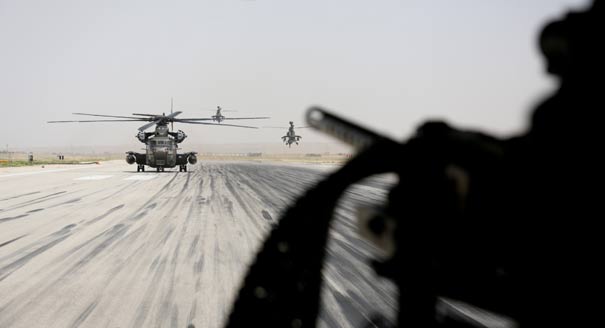Beginning November 2, over 6,000 NATO troops will carry out large-scale exercises in Poland and the Baltic states. It is all part of the alliance’s efforts to launch its much-delayed NATO Response Force next year.
Besides being one of NATO’s biggest exercises since 2006, Steadfast Jazz is also the first time that the U.S.-led military alliance has established a major presence along Russia’s border with the EU.
Poles and Lithuanians, Latvians and Estonians are delighted that NATO is taking their region seriously. These countries believe in the sanctity of the alliance’s Article 5: when one member is attacked or threatened, its allies will come to its defense.
The exercise is timely. It is taking place just weeks before the EU’s Eastern Partnership summit in Vilnius, with the Kremlin openly twisting arms to prevent Ukraine and Moldova from moving closer to the EU. For the Baltic countries, Russia’s behavior amply proves the political and symbolic importance of this NATO exercise.
It is important for another reason, too.
Steadfast Jazz takes place against the background of a widening gap between France and Germany over defense and security matters. The question of how Europe’s two most important countries perceive defense and security is significant. It influences Europe’s foreign policy ambitions, and has an impact on NATO.
France is sending 1,200 troops to Steadfast Jazz, by far the largest contingent. Poland is sending 1,040 soldiers. Even more interesting are the American and German contributions. The United States is sending 160 personnel; Germany is sending 55, according to NATO.
The American contribution is telling. For Washington, NATO is now more useful for building coalitions of the willing, which it has been resorting to since the Iraq War of 2003, than as a collective alliance. Indeed, it is hard to recall the last time U.S. President Barack Obama gave a thoughtful speech about NATO and how it might fit into America’s long-term security strategy.
The German contribution to Steadfast Jazz is staggeringly low, particularly since the security and stability of Poland and the Baltics should weigh heavy in Berlin’s strategic interests. It reveals a growing German indifference toward defense and security issues, whether they are related to NATO or the EU.
What a contrast to France. The fact that France, long the bête noir of NATO until it rejoined the alliance’s military command structure in 2009, is taking the lead in Steadfast Jazz reveals two things about Paris’s motivations.
The first is that the defense cutbacks now being undertaken by President François Hollande mean that France can no longer afford to go it alone. The Mali mission of January 2013 proved that France still has enormous political will and military capabilities to conduct an operation. But the country cannot sustain missions for an extended period of time. So if it can call on NATO, as it did during the military campaign against Libya in early 2011, or on the UN or African Union, as in Mali, so much the better.
The second revelation concerns France’s difficulties with Germany. Berlin is unwilling to engage in any debate about military matters. It will neither discuss the EU’s strategic and security interests nor talk about NATO’s role after the alliance withdraws from Afghanistan in 2014.
Germany’s attitude bothers France. In fact, Paris is considering closing one of the units attached to the Franco-German Brigade. Established in 1989 by former German chancellor Helmut Kohl and former French president François Mitterrand, the brigade was supposed to consolidate the postwar bonds between the two countries by creating a joint fighting unit. Yet twenty-four years later, the brigade has yet to serve in a single international mission.
That is because the two nations’ cultures, training, and equipment are so different. There is little interoperability in weaponry. In France, approval for missions rests with the president. In Germany, it rests with parliament. Above all, the two countries cannot agree on the most fundamental military decision: the use of force. Yet the sheer symbolism of the brigade has, so far, been enough to keep it financed.
France is now weighing up NATO’s future role and the EU’s reluctance to embrace a defense doctrine. That puts Paris in an unenviable position. Its 2010 Defense Cooperation Treaty with Britain is fraying as the government of UK Prime Minister David Cameron also slashes defense spending.
Against this background, now is the ideal time to recognize what Steadfast Jazz means for Europe.
One possibility is to Europeanize NATO, given the changing priorities in the United States. That’s not an option yet but might be worth pursuing in the future. As of now, several Eastern European countries still see NATO as an American security umbrella.
The other option is for France to take the lead at the EU defense summit in December and push for a strong security and defense doctrine. That approach could suit several European countries that know full well how the U.S. interest in Europe is waning and realize what this means for Europe’s security. Steadfast Jazz says it all.






